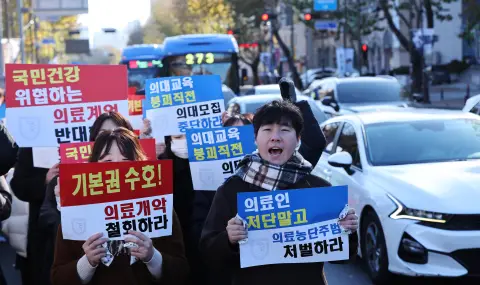South Korean President Yoon Suk-yeol faces serious political and legal challenges after martial law was declared last week, leading to accusations of treason and abuse of power. Ministry of Defense confirmed that Yun remains commander-in-chief of the military, but the alliance with the US is also under strain.
Investigation and domestic political pressure
After the president survived the impeachment vote in parliament, his own party "People's Power" created a task force to consider his resignation. Prosecutors are investigating Yun for alleged treason related to the short-lived martial law, which he lifted just six hours after it was declared.
Former Defense Minister Kim Jong-hyun has already been arrested on charges of leading the failed martial law attempt. Colonel Kim Hyun-tae, commander of the 707th Special Mission Group, revealed to the media that he had been ordered to send soldiers to prevent parliament from voting against the president's decision.
Political and economic instability
The main opposition Democratic Party is demanding that Yun be removed from power and face prosecution, warning of economic consequences for Asia's fourth-largest economy. The Ministry of Finance promised extraordinary measures to stabilize the financial markets and ensure liquidity until the end of December.
Allied reactions and international consequences
The martial law decision raised alarm among Seoul's allies. US Secretary of State Anthony Blinken spoke with his South Korean counterpart, expressing expectations for preserving the democratic process. Meanwhile, the alleged deployment of North Korean troops to support Russian forces in Ukraine complicates the regional geopolitical situation.
South Korea's crisis is shaking political stability and calling into question President Yoon's leadership, while exposing tensions in the country's military management and strategic alliances.
